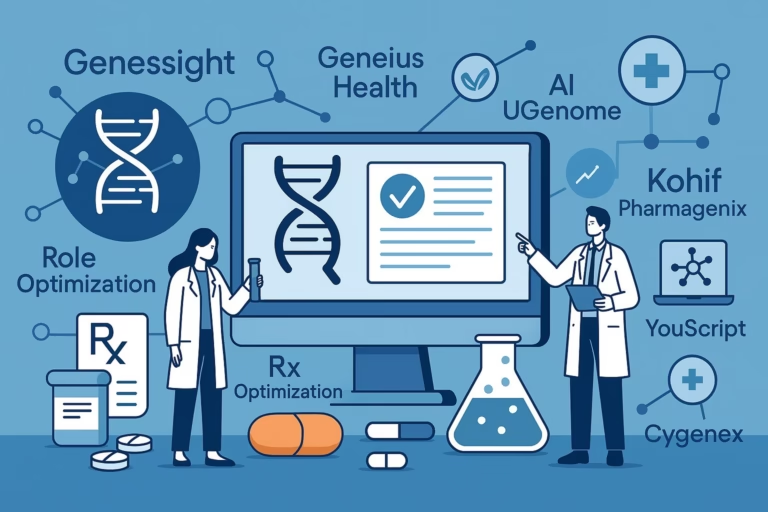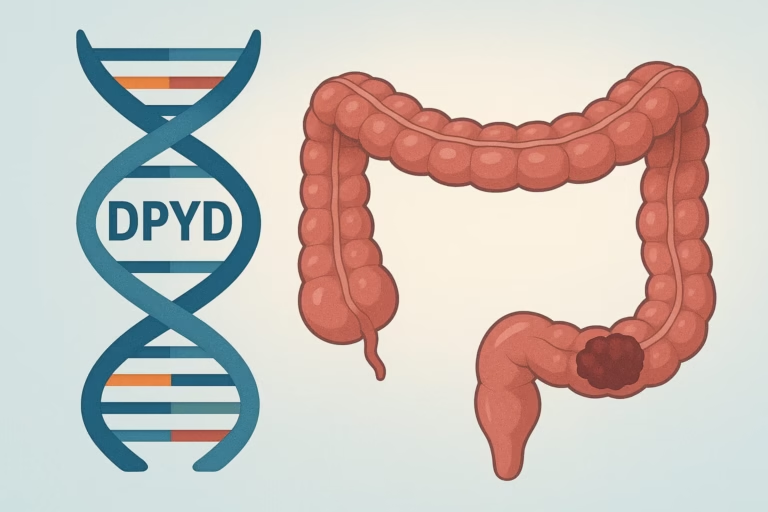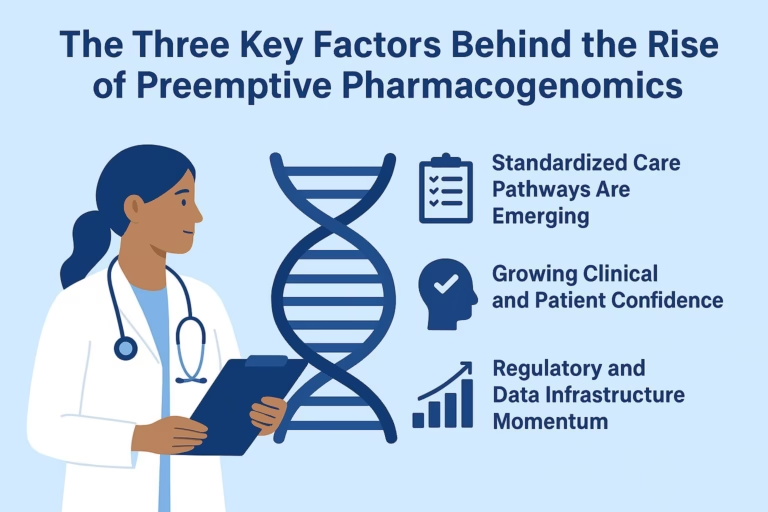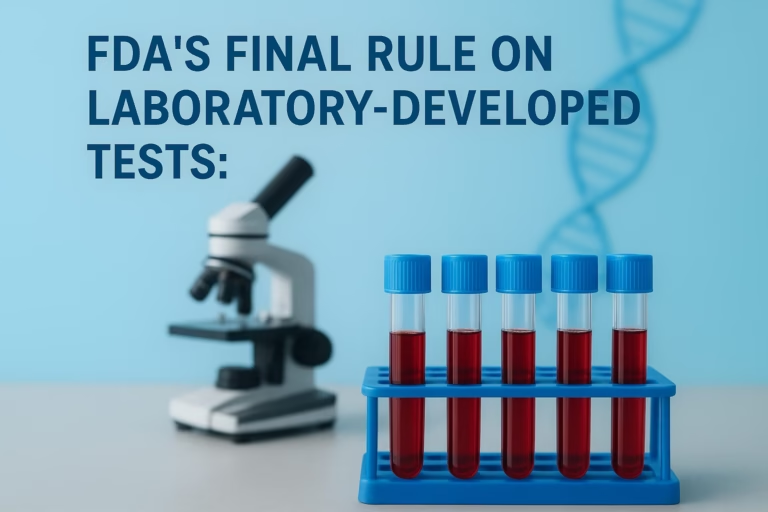The field of pharmacogenomics is rapidly expanding, with the global market size expected to reach $10.2 billion by 2025, at a compound annual growth rate (CAGR) of 19%1. This raises the question: how will expanding pharmacogenomics education shape the future of personalized medicine? Universities and training centers must provide comprehensive courses, including online options, to equip future healthcare professionals with the necessary knowledge and skills2.
Over 62% of student pharmacists believe pharmacogenomics should be a required curriculum component, based on a survey of 2,500 students2. Moreover, 68% of major hospitals globally now incorporate pharmacogenomic testing into their diagnostics1. This highlights the need for accessible and comprehensive pharmacogenomics education. It also underscores the importance of universities and training centers in making a significant impact through online education and other initiatives.

The expansion of pharmacogenomics education is vital for the advancement of personalized medicine. The percentage of colleges or schools of pharmacy with pharmacogenomics in their curriculum has increased from 39% in 2005 to 89% in 20102. The global pharmacogenomics market is projected to reach a market valuation of US$ 10.68 billion by 2033, growing from US$ 4.58 billion in 20241. It is essential to provide comprehensive and accessible educational programs, including online pharmacogenomics education. These programs must equip future healthcare professionals with the knowledge and skills to apply pharmacogenomics in clinical practice. They will also drive the growth of the pharmacogenomics market through expanding education and courses.
The Evolution of Pharmacogenomics in Healthcare Education
Pharmacogenomics has seen remarkable growth, reshaping healthcare professionals’ approach to patient care. The importance of pharmacogenomics education is paramount, allowing for more precise medication therapy decisions. Guidelines and competencies have been established to ensure pharmacogenomics knowledge is applied effectively in clinical settings3.
Research indicates that pharmacogenomics training enhances patient outcomes. A 30% reduction in medication adverse events was observed over 12 weeks with PGx testing3. Pharmacists with pharmacogenomics education show enhanced knowledge and confidence in applying these principles4.
The educational framework for pharmacogenomics is expanding, acknowledging the necessity for comprehensive education. This includes incorporating pharmacogenomics into pharmacy curricula and offering continuous professional development5. As pharmacogenomics evolves, ensuring healthcare professionals receive robust pharmacogenomics training is crucial for delivering superior patient care.
Core Components of Expanding Pharmacogenomics Education
Genetic testing in pharmacy education is vital for pharmacogenomics curriculum, enabling healthcare professionals to offer personalized medicine careers in the pharmacogenomics field. It is essential to integrate genetic testing into pharmacy education to ensure students are ready to apply pharmacogenomics in clinical settings6. This involves grasping how genetic variations influence individual drug responses and tailoring treatment plans accordingly.
A thorough pharmacogenomics curriculum must cover pharmacogenetic testing, genetic counseling, and precision medicine. Educational programs should also offer practical experience in analyzing genetic test outcomes and applying them to actual clinical cases7. By integrating these elements into pharmacogenomics education, we can arm healthcare professionals with the necessary knowledge and skills for delivering superior, tailored care to their patients.
The advantages of pharmacogenomics education go beyond academic settings, contributing to enhanced patient results and lower healthcare expenses8. By equipping healthcare professionals with the skills to apply pharmacogenomics in practice, we can enhance treatment efficacy and safety, minimizing adverse reactions and enhancing patient well-being.
| Component | Importance |
|---|---|
| Genetic testing | Enables personalized medicine |
| Pharmacogenomics curriculum | Provides comprehensive education |
| Hands-on experience | Prepares students for real-world scenarios |
Benefits of Pharmacogenomics Training for Healthcare Professionals
Pharmacogenomics training is crucial for healthcare professionals to deliver personalized care. It enhances patient outcomes and minimizes adverse reactions. Studies show that pharmacogenomic education boosts patient safety by identifying at-risk individuals through genetic analysis9.
Pharmacogenomics courses equip healthcare professionals to interpret genetic test results and make informed medication choices. This approach leads to cost-effective treatments and better patient care. Tailored treatments based on genetic insights significantly increase the chance of optimal therapeutic outcomes9. Moreover, integrating pharmacogenomic data into electronic health records (EHRs) necessitates collaboration among healthcare providers, EHR vendors, and technology experts10.
Some of the benefits of pharmacogenomics training include:
- Enhanced patient care outcomes
- Precision medicine applications
- Cost-effective treatment strategies
By integrating pharmacogenomics into their practice, healthcare professionals can offer more effective and personalized care. This approach results in better health outcomes and reduced healthcare costs9. The Royal College of Physicians (RCP) and the British Pharmacological Society (BPS) also advocate for pharmacogenomics in healthcare10.
Innovative Teaching Methods in Pharmacogenomics
Online pharmacogenomics education is gaining prominence in pharmacy, enabling students to grasp the latest in genetics and its pharmaceutical applications11. It is imperative to integrate genetics into pharmacy education, allowing pharmacists to tailor treatments and enhance patient care12. Studies reveal that over 175 medications now include pharmacogenomics-related labeling, underscoring the necessity for pharmacists’ expertise in this domain12.
Teaching methods in pharmacogenomics are evolving, incorporating online resources, clinical decision support tools, and certificate programs11. These resources enhance postgraduate training in pharmacogenomics, equipping pharmacists with the latest knowledge13. For instance, research indicates that 91% of patients have genotypes linked to pharmacogenomics actionable drugs, emphasizing pharmacists’ need for such awareness13.
Pharmacy schools are adopting online pharmacogenomics education and innovative teaching approaches to equip students for success11. This includes active learning methods like case studies and group discussions to foster engagement and in-depth understanding11. As pharmacogenomics advances, it is critical for pharmacy education to evolve, ensuring students can deliver personalized care and improve patient outcomes12.
Developing Comprehensive Pharmacogenomics Curricula
Creating a well-structured pharmacogenomics curriculum is vital for ensuring students gain the necessary knowledge and skills. A comprehensive curriculum should include genetics, pharmacology, and biostatistics. The European Ubiquitous Pharmacogenomics (U-PGx) project offers educational programs, including web-based seminars, e-learning opportunities, and real-life courses, which can be integrated into the curriculum14.
Pharmacogenomics training is crucial for healthcare professionals, enabling them to provide personalized medicine and improve patient outcomes. Studies show over 175 medications have drug labeling information related to pharmacogenomics, and about 3% of Americans carry a high-risk genotype for at least one medication14. The curriculum should also include laboratory integration techniques, such as genetic testing and genotyping, to provide hands-on experience for students.
Essential Course Components
- Genetics and genomics
- Pharmacology and pharmacokinetics
- Biostatistics and epidemiology
- Pharmacogenomics and personalized medicine
Assessment methods and outcomes are also crucial in evaluating the effectiveness of the pharmacogenomics curriculum. The curriculum should include a combination of theoretical and practical assessments, such as written exams, case studies, and laboratory experiments. By developing a comprehensive pharmacogenomics curriculum, educational institutions can provide students with the necessary knowledge and skills to succeed in the field of pharmacogenomics and pharmacogenomics training15.
Online Learning Platforms and Digital Resources
Online pharmacogenomics education is gaining traction, offering flexibility and accessibility to a broad audience16. The U-PGx project stands out with its free educational materials, making it a prime resource for those exploring online pharmacogenomics education17.
Several notable online courses and resources are available:
- 20+ online courses related to pharmacogenomics available for 202516
- 29 courses displayed on the Class Central platform16
- A free online course on edX lasting 1 week, requiring 2-3 hours of study per week16
These platforms and resources are pivotal in expanding pharmacogenomics education, ensuring healthcare professionals remain current with field advancements18. By integrating online pharmacogenomics education into their training, healthcare professionals enhance their expertise. This, in turn, leads to enhanced patient care outcomes.

Practical Applications and Clinical Experience Integration
Pharmacogenomics education transcends mere theoretical knowledge, embracing practical application in real-world scenarios. This is where practical applications and clinical experience integration become pivotal. By integrating pharmacogenomics into pharmacogenomics courses and pharmacogenomics training, students acquire hands-on experience in genetic testing and interpretation.
Overcoming challenges in pharmacogenomics education necessitates early exposure to pharmacogenomics through foundational courses. Additionally, incorporating pharmacogenomics into practice-based therapeutics courses is crucial. This strategy aids in developing a profound understanding of pharmacogenomics’ role in enhancing medication-related outcomes19. Pharmacogenomic testing, for example, can unveil genetic variations influencing drug response, thereby facilitating more precise treatment approaches20.
The integration of pharmacogenomics into clinical practice yields significant benefits, including:
- Enhanced patient outcomes
- Decreased adverse reactions
- More targeted treatment strategies
These advantages can be realized through pharmacogenomics training programs and pharmacogenomics courses emphasizing practical applications19. By equipping healthcare professionals with the requisite knowledge and skills for pharmacogenomics application in clinical settings, we can significantly enhance patient care and outcomes20.
Certification and Continuing Education Programs
For healthcare professionals, advancing pharmacogenomics knowledge is paramount. Incorporating genetics into pharmacy education is achievable through certification and continuing education. These initiatives are crucial for pharmacists to remain abreast of pharmacogenomics advancements21. The American Society of Health-System Pharmacists offers a pharmacogenomics certificate program. It consists of 8 modules, requiring a minimum of 19.5 hours of continuing education21.
The curriculum spans diverse topics, including the clinical application of pharmacogenomics, guidelines, and informatics. Participants can accrue continuing education credits, with 10.25 hours for knowledge-based activities and 9.25 hours for application-based activities21. Another program offers up to 15 continuing medical education credits. Modules are priced at $150 for 3 CME credits and $100 for 2 CME credits22.
These programs are indispensable for pharmacists to refine their pharmacogenomics expertise. This, in turn, leads to enhanced patient care outcomes. By integrating genetics into pharmacy education, pharmacists can offer more tailored and effective treatments21. The significance of ongoing education in pharmacogenomics is immense. It ensures healthcare professionals are well-versed in the latest research and advancements22.
In summary, certification and continuing education programs are essential for pharmacogenomics advancement and genetics integration in pharmacy education. These initiatives equip healthcare professionals with the necessary skills and knowledge. This enables them to deliver personalized and effective treatments, ultimately enhancing patient care outcomes21.
Collaboration Between Academic Institutions and Industry Partners
Expanding pharmacogenomics education necessitates a partnership between academic institutions and industry partners. This alliance is crucial for advancing pharmacogenomics research and education. It enables the sharing of resources, expertise, and knowledge. Recent data indicates that about 20% of research papers focus on the synergy between academia and industry in pharmacogenomics23. The rate of increase in collaborative studies is 15% annually, showing a growing trend towards partnership and cooperation23.
The funding sources for pharmacogenomics research are noteworthy, with 40% coming from private industry, 30% from government grants, and 30% from academic institutions23. This highlights the critical role of industry partnerships in supporting pharmacogenomics research and education. Moreover, 80% of 323 trials with pharmacogenomics outcomes were conducted by academic institutions post-regulatory approval, demonstrating academia’s significant role in advancing pharmacogenomics23.
Pharmacogenomics courses and expanding pharmacogenomics education are vital for training the next generation of researchers and healthcare professionals. The American Pharmacogenomics Association (APGxA) is committed to advancing pharmacogenomics through research, education, policy advocacy, and public awareness. It offers resources and networking opportunities for industry professionals learn more about APGxA membership. Agena Bioscience has also partnered with Manchester University to enhance pharmacogenomics (PGx) educational resources, providing a Graduate Certificate and a Master of Science degree in PGx24.
These partnerships and collaborations are essential for advancing pharmacogenomics education and research. They are crucial for improving healthcare outcomes through better medication prescribing practices. By working together, academic institutions and industry partners can drive innovation and progress in pharmacogenomics. This will ultimately lead to more effective and personalized treatments for patients.
Overcoming Challenges in Implementation
Integrating pharmacogenomics education into healthcare settings poses significant hurdles. These include a dearth of faculty with pharmacogenomics expertise and a scarcity of experiential learning environments25. The significance of pharmacogenomics education in tailoring patient care cannot be overstated, as it enhances treatment efficacy. To address these obstacles, institutions must devise strategies for resource allocation. This could involve hiring pharmacogenomics specialists or partnering with other educational bodies to leverage shared resources.
Faculty development initiatives are crucial for equipping existing educators with the necessary knowledge to instruct pharmacogenomics courses. Additionally, leveraging administrative support systems, such as online platforms and digital resources, can facilitate pharmacogenomics training and education26.
Key challenges in implementing pharmacogenomics education include:
- Insufficient funding for pharmacogenomics programs
- Lack of standardized curricula for pharmacogenomics education
- Limited availability of practice settings for experiential education
Despite these hurdles, the critical role of pharmacogenomics education in enhancing patient care outcomes is undeniable. Institutions must therefore devise strategies to overcome these challenges and deliver superior pharmacogenomics training to healthcare professionals.
By investing in pharmacogenomics training and education, healthcare institutions can significantly enhance patient care outcomes and reduce healthcare expenditures. This underscores the pivotal role of pharmacogenomics education in contemporary healthcare25.
| Challenge | Solution |
|---|---|
| Insufficient funding | Collaborate with other institutions to share resources |
| Lack of standardized curricula | Develop standardized curricula for pharmacogenomics education |
| Limited availability of practice settings | Utilize online learning platforms and digital resources |
Shaping the Future of Personalized Medicine Through Education
Pharmacogenomics is rapidly advancing, and education is key to its successful integration into clinical settings27. By enhancing pharmacogenomics knowledge and integrating genetics into pharmacy curricula, healthcare professionals will be more adept at delivering personalized, data-driven care. This will lead to better patient outcomes28.
The trajectory of personalized medicine relies on our capacity to translate genomic and precision diagnostic advancements into practical applications27. Through extensive training and cutting-edge educational approaches, universities and healthcare entities can prepare the next wave of healthcare professionals. They will be equipped to harness the potential of pharmacogenomics and personalized therapies28.
Embracing this transformative healthcare shift will unlock personalized medicine’s full potential, revolutionizing disease treatment and prevention27. As pharmacogenomics progresses, genetics-based education will be essential. It will shape a future where tailored, evidence-based treatments become the norm28.
Source Links
- Collaborations Between Academia and Industry in Pharmacogenomics Research and Business – https://americanpharmacogenomicsassociation.com/business/academia-and-industry-in-pharmacogenomics/
- Educational Strategies to Provide Pharmacogenomics-Based Care – https://pmc.ncbi.nlm.nih.gov/articles/PMC5665396/
- Frontiers | Evolution of pharmacogenomic services and implementation of a multi-state pharmacogenomics clinic across a large rural healthcare system – https://www.frontiersin.org/journals/pharmacology/articles/10.3389/fphar.2023.1274165/full
- Development and Evaluation of a Pharmacogenomics Educational Program for Pharmacists – https://pmc.ncbi.nlm.nih.gov/articles/PMC3578323/
- Educational Gaps in Pharmacogenomics: Addressing the Shortfall – https://americanpharmacogenomicsassociation.com/education/educational-resource-needs-among-physicians/
- Frontiers | Addressing disparities in pharmacogenomics through rural and underserved workforce education – https://www.frontiersin.org/journals/genetics/articles/10.3389/fgene.2022.1082985/full
- Maturing pharmacogenomic factors deliver improvements and cost efficiencies | Cambridge Prisms: Precision Medicine | Cambridge Core – https://www.cambridge.org/core/journals/cambridge-prisms-precision-medicine/article/maturing-pharmacogenomic-factors-deliver-improvements-and-cost-efficiencies/6054665190DFB15AA797EE47D33B8E3B
- Pharmacogenomics and Personalized Medicine: Bridging Genetic Knowledge and Clinical Practice – https://link.springer.com/10.1007/978-3-642-37393-0_226-1
- Advancing Education And Awareness Of Pharmacogenomics: Insights From Recent Publications – A Review – https://www.ijpsjournal.com/article/Advancing Education And Awareness Of Pharmacogenomics Insights From Recent Publications A Review
- PDF – https://www.bps.ac.uk/getmedia/b43a3dca-1bbf-4bff-9379-20bef9349a8c/Personalised-prescribing-full-report.pdf.aspx
- An Effective Approach to Teaching Pharmacogenomics in the First Year of Pharmacy Curriculum – https://pmc.ncbi.nlm.nih.gov/articles/PMC6221532/
- Clinical Application and Educational Training for Pharmacogenomics – https://www.mdpi.com/2226-4787/8/3/163
- Frontiers | Pharmacogenomics in practice: a review and implementation guide – https://www.frontiersin.org/journals/pharmacology/articles/10.3389/fphar.2023.1189976/full
- Clinical Application and Educational Training for Pharmacogenomics – https://pmc.ncbi.nlm.nih.gov/articles/PMC7558792/
- The Need for Cross-Disciplinary Programs in Pharmacogenomics Education – https://americanpharmacogenomicsassociation.com/education/cross-disciplinary-programs-in-pharmacogenomics/
- 20+ Pharmacogenomics Online Courses for 2025 | Explore Free Courses & Certifications | Class Central – https://www.classcentral.com/subject/pharmacogenomics
- Frontiers | Pharmacogenomics Implementation Training Improves Self-Efficacy and Competency to Drive Adoption in Clinical Practice – https://www.frontiersin.org/journals/pharmacology/articles/10.3389/fphar.2021.684907/full
- Healthcare provider education to support integration of pharmacogenomics in practice: the eMERGE Network experience – https://pmc.ncbi.nlm.nih.gov/articles/PMC5941709/
- PDF – https://www.ashp.org/-/media/assets/policy-guidelines/docs/statements/pharmacists-role-clinical-pharmacogenomics.ashx
- Why is Pharmacogenetics and Pharmacogenomics Important? – https://www.pharmafocuseurope.com/articles/why-is-pharmacogenetics-and-pharmacogenomics-important
- Pharmacogenomics Certificate – https://elearning.ashp.org/products/11488/pharmacogenomics-certificate
- Continuing Medical Education: Pharmacogenomic Certificate Program – Genomind – https://genomind.com/providers/continuing-medical-education-pharmacogenomic-certificate-program/
- Collaborations Between Academia and Industry in Pharmacogenomics Research and Business – https://americanpharmacogenomicsassociation.com/li-newsletter/academia-and-industry-in-pharmacogenomics-research-and-business/
- Agena Bioscience & Manchester University Announce Partnership to Provide Educational Resources to the Pharmacogenomics Industry – https://www.agenabio.com/company/press-release/agena-bioscience-manchester-university-partnership-provides-educational-resources-pharmacogenomics-industry/
- Pharmacogenomics Implementation and Hurdles to Overcome; In the Context of a Developing Country – https://pmc.ncbi.nlm.nih.gov/articles/PMC8842599/
- Pharmacogenomics: Challenges and Opportunities – PMC – https://pmc.ncbi.nlm.nih.gov/articles/PMC5006954/
- Precision Medicine, AI, and the Future of Personalized Health Care – https://pmc.ncbi.nlm.nih.gov/articles/PMC7877825/
- Pharmacogenomics: Driving Personalized Medicine – PMC – https://pmc.ncbi.nlm.nih.gov/articles/PMC10289244/





